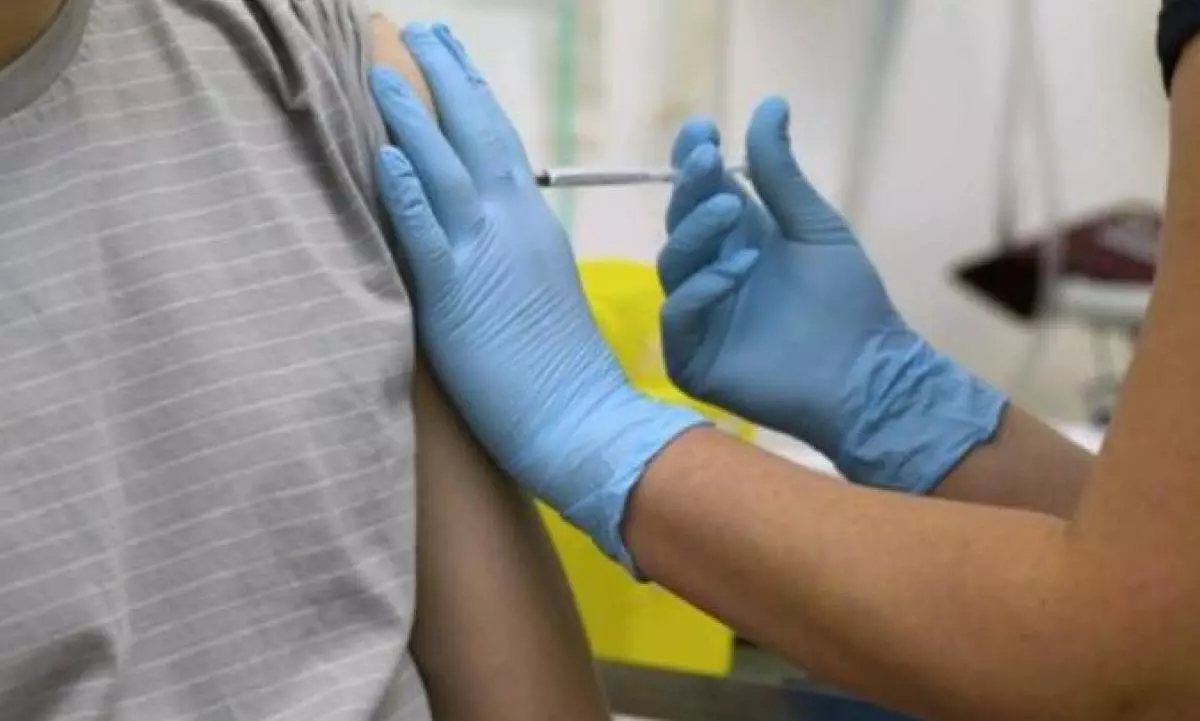

Why Indonesia is vaccinating young working population first?
text_fieldsWhile the rest of the world is focusing on vaccinating the elderly in their country in the first phase after the frontline health workers, Indonesia is taking an altogether different approach and is vaccinating the young working age population first before the elderly.
The UK and US began their vaccination process this week starting with the healthcare workers and nursing home residents.
In the UK, the first person to receive a COVID-19 vaccine outside trial conditions was a 90-year-old pensioner. In Canada, the first recipient was only marginally younger at 89. In Germany, a 101-year-old nursing home resident was first in line.
But in Indonesia, the country which is worst affected by the virus in Southeast Asia with 836,718 confirmed cases and 24,343 deaths, however chose to target the people aged from 18- 54 who are most mobile due to their jobs and is therefore highly exposed to the virus than the elderly. With the limited supply of vaccines available, the nation chooses to inoculate the young population who will then work together to curb the further spread of virus.
But according to Al Jazeera report, as per the data released by Indonesia's Ministry of Health, people over 60 years of age represent only 10 percent of Indonesia's population but 39 percent of COVID-19 fatalities.
The new health minister of the country Budi Gunadi Sadikin defended the strategy and pointed out that inoculating the working people in a household means that they will not bring the virus to their homes where the elderly are. But this again depends on the vaccine's effect in preventing virus transmission to other people which has not been proved yet by the scientists.
This different approach by the country is also because of its heavy reliance on the Chinese vaccine Sinovac which has only been found 50.4 per cent effective in the recent clinical trials conducted in Brazil. Hence the vaccine's safety in elderly and pregnant women is yet to be determined.
While developed nations like UK and US have enough vaccine doses to start vaccinating the elderly first, there is also the problem of developing nations like Indonesia having only enough doses of vaccines to give to the people most vulnerable and likely to spread the virus.
Though the scientists are unsure of the outcome of this experimental strategy, the government has chosen an unorthodox vaccination strategy to make sure that the country's economy is moving ahead.
Economists have argued a successful vaccination programme covering around 100 million people will help jumpstart the economy, as they are more likely to resume economic activity such as spending and production.
According to Faisal Rachman, an economist with Bank Mandiri, 18-59 age group has consumption needs that are higher than other groups.
"They could jack up the economic recovery faster because household consumption contributes more than 50% to Indonesia's economy," he said, warning that rising COVID-19 cases in the country could also risk lowering people's confidence.
The pandemic pushed Indonesia, Southeast Asia's largest economy, into its first recession in more than two decades last year, with the government estimating a contraction of as much as 2.2%.
(With inputs from agencies reported by Naja Shirin)





















